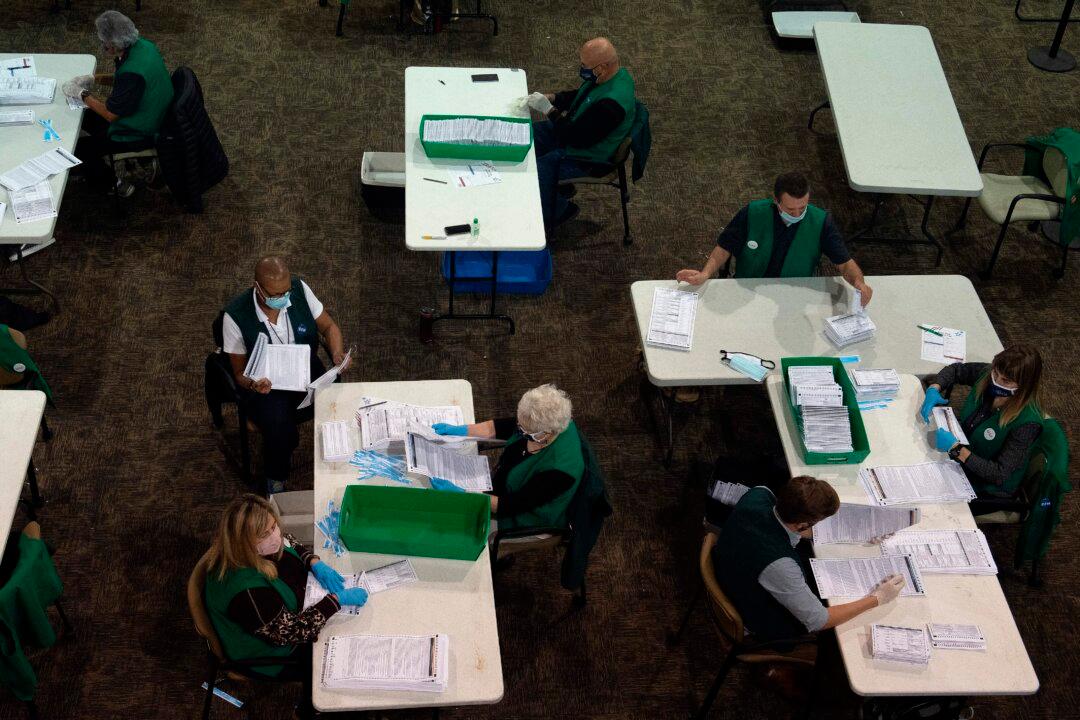U.S. voters who are skeptical of voting outcomes in an election should make a point of volunteering as poll workers to get firsthand experience about their locality’s election process, an election administration expert has suggested.
David Becker, executive director and founder of the Center for Election Innovation & Research, made the statement on June 21 at an event about building confidence in election outcomes that was organized by the American Enterprise Institute (AEI), a public policy think tank based in Washington.





